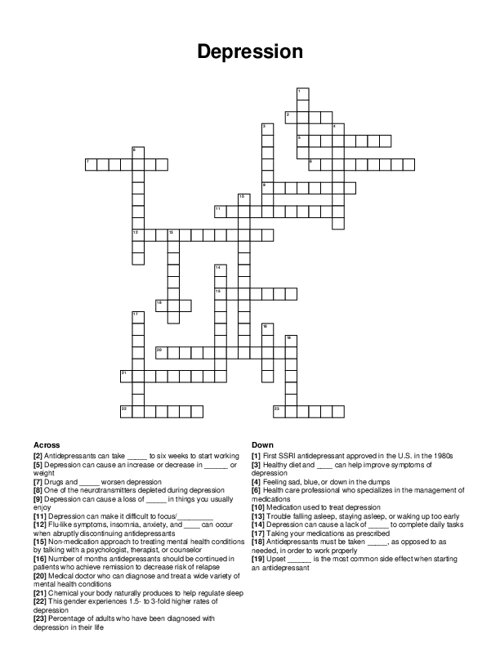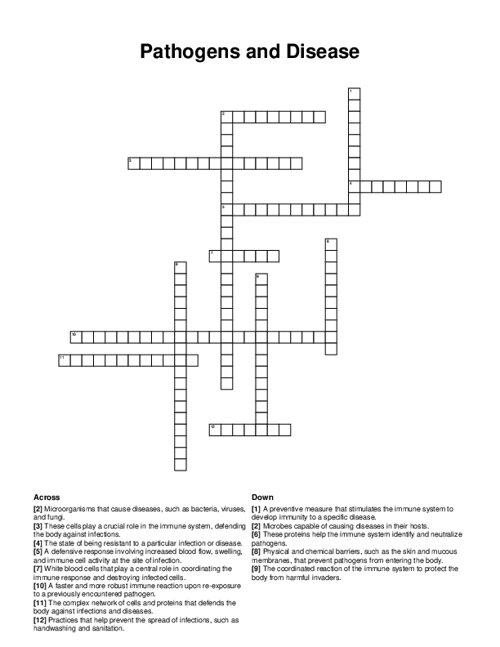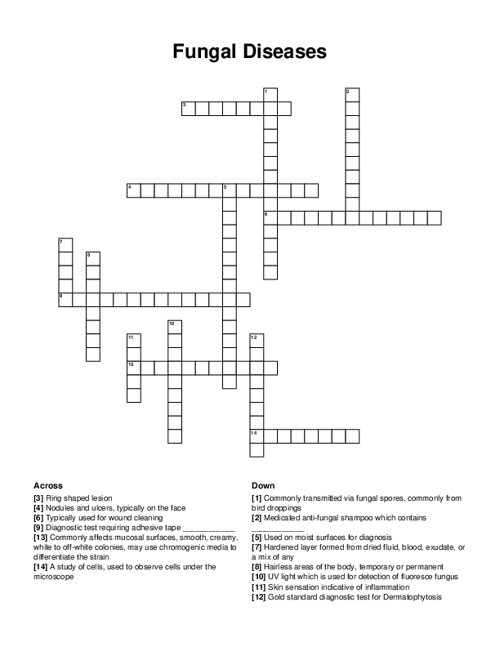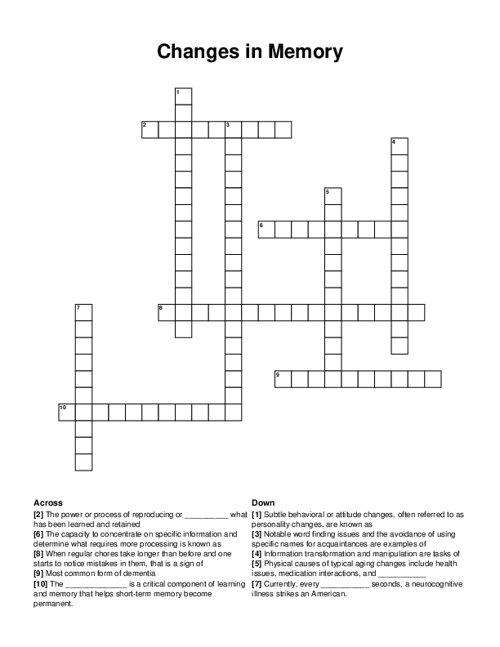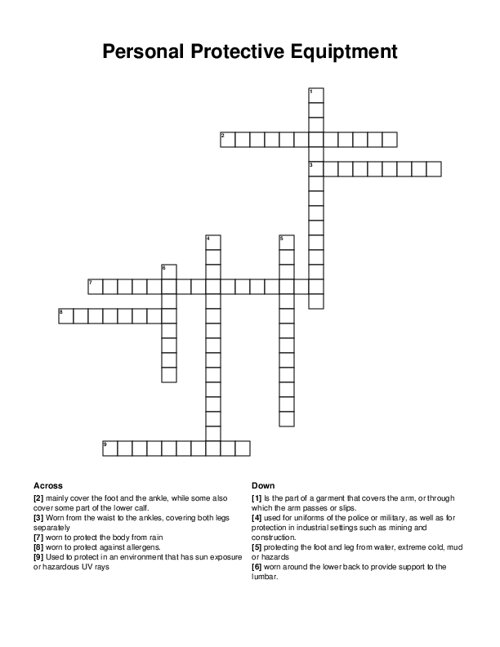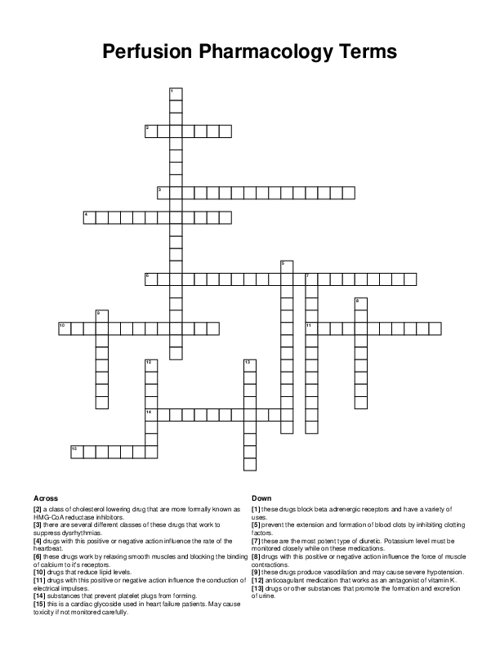Depression Crossword Puzzle
Download and print this Depression crossword puzzle.
Related puzzles:
Browse all Health / Fitness Puzzles
QUESTIONS LIST:
- insomnia: trouble falling asleep, staying asleep, or waking up too early
- concentrate: depression can make it difficult to focus/ _
- interest: depression can cause a loss of _ in things you usually enjoy
- appetite: depression can cause an increase or decrease in _ or weight
- depressed: feeling sad, blue, or down in the dumps
- motivation: depression can cause a lack of _ to complete daily tasks
- thirty: percentage of adults who have been diagnosed with depression in their life
- females: this gender experiences 1.5- to 3-fold higher rates of depression
- serotonin: one of the neurotransmitters depleted during depression
- antidepressant: medication used to treat depression
- melatonin: chemical your body naturally produces to help regulate sleep
- psychiatrist: medical doctor who can diagnose and treat a wide variety of mental health conditions
- therapy: non-medication approach to treating mental health conditions by talking with a psychologist, therapist, or counselor
- pharmacist: health care professional who specializes in the management of medications
- four: antidepressants can take _ to six weeks to start working
- stomach: upset _ is the most common side effect when starting an antidepressant
- exercise: healthy diet and _ can help improve symptoms of depression
- prozac: first ssri antidepressant approved in the u.s. in the 1980s
- daily: antidepressants must be taken _ , as opposed to as needed, in order to work properly
- adherence: taking your medications as prescribed
- alcohol: drugs and _ worsen depression
- irritability: flu-like symptoms, insomnia, anxiety, and _ can occur when abruptly discontinuing antidepressants
- six: number of months antidepressants should be continued in patients who achieve remission to decrease risk of relapse
